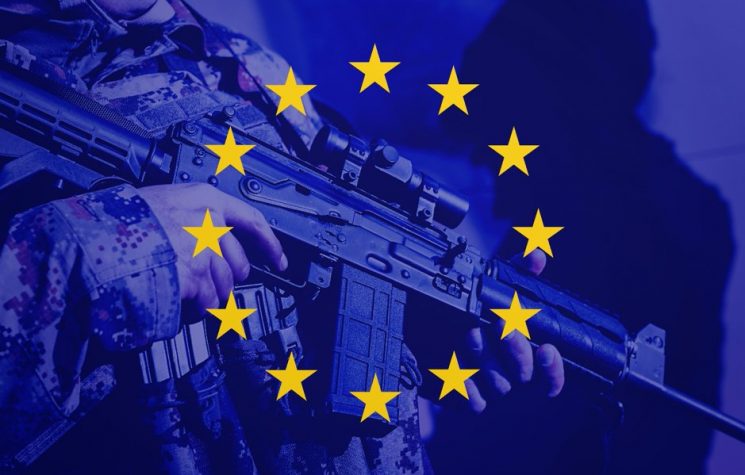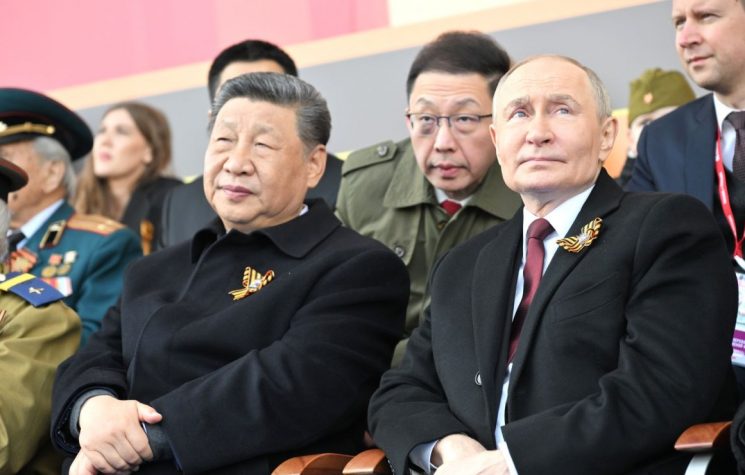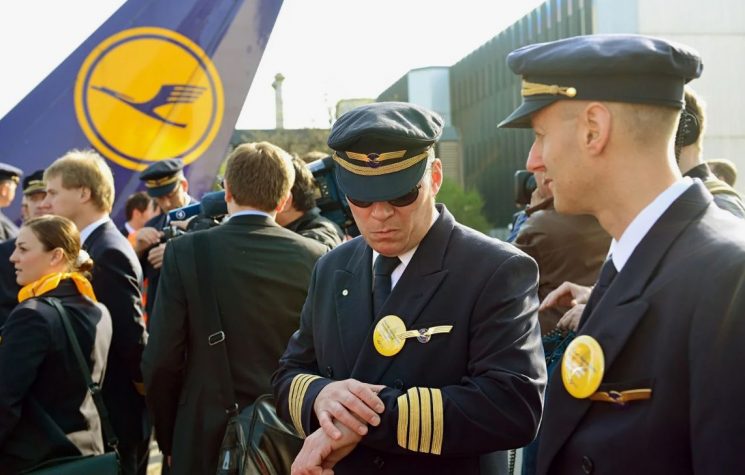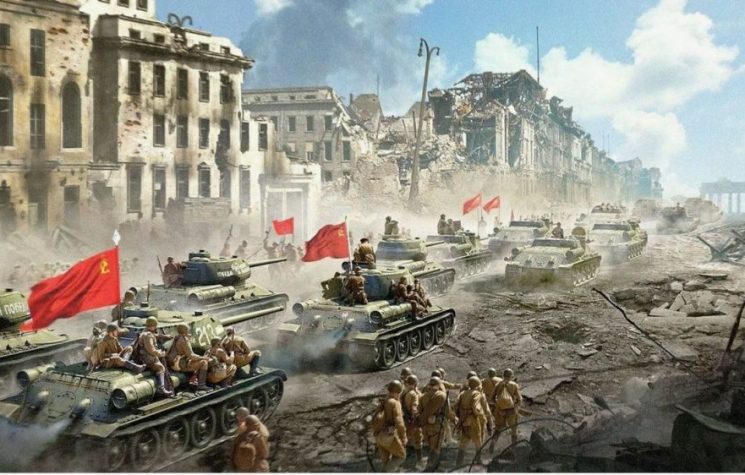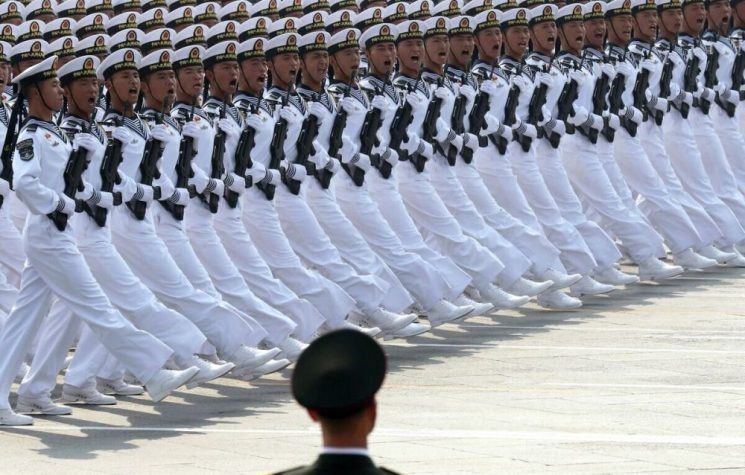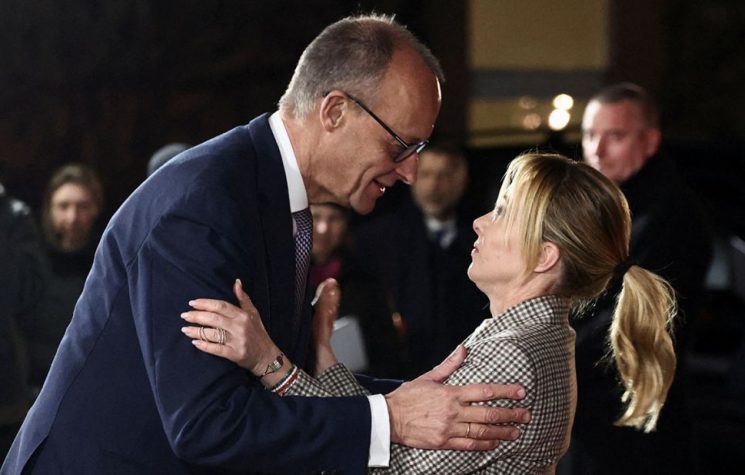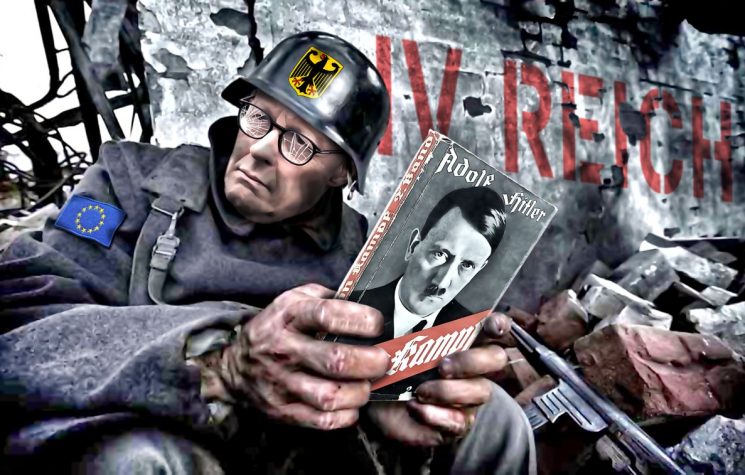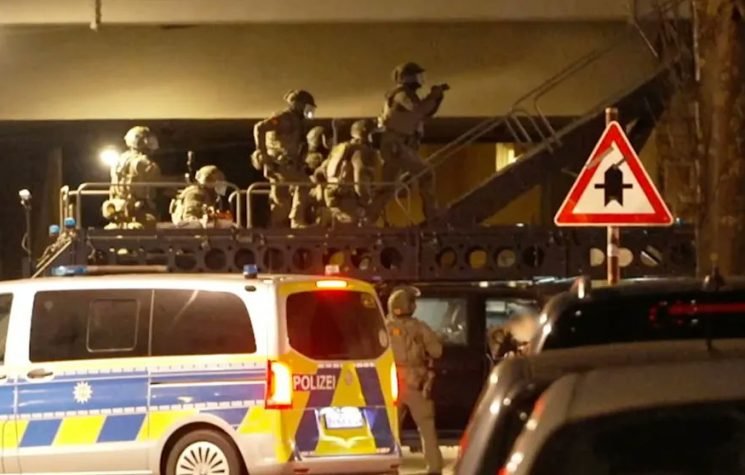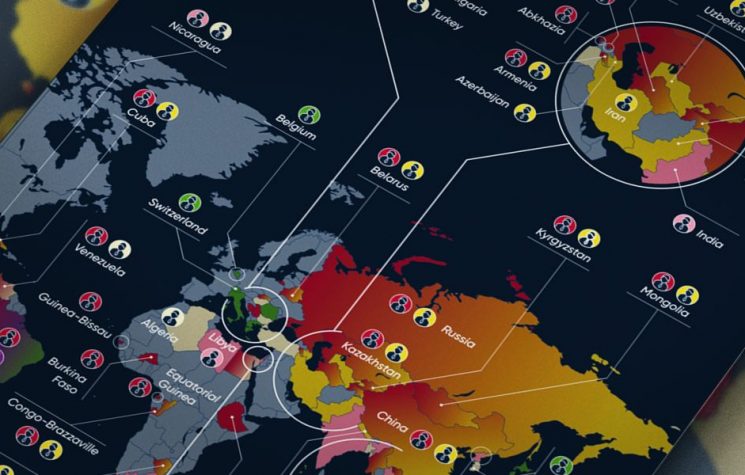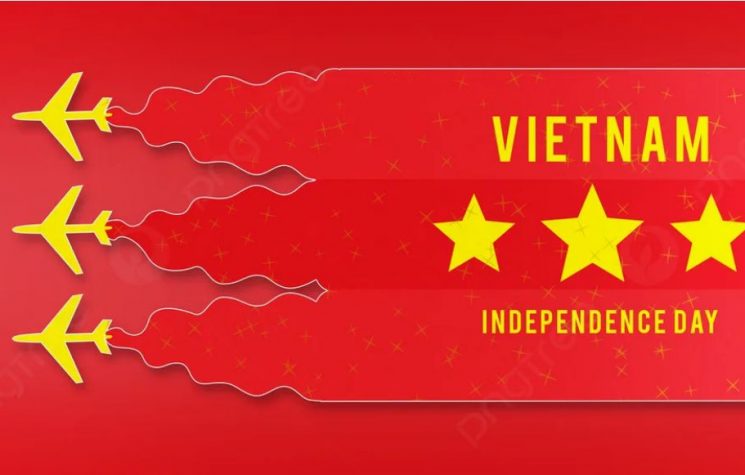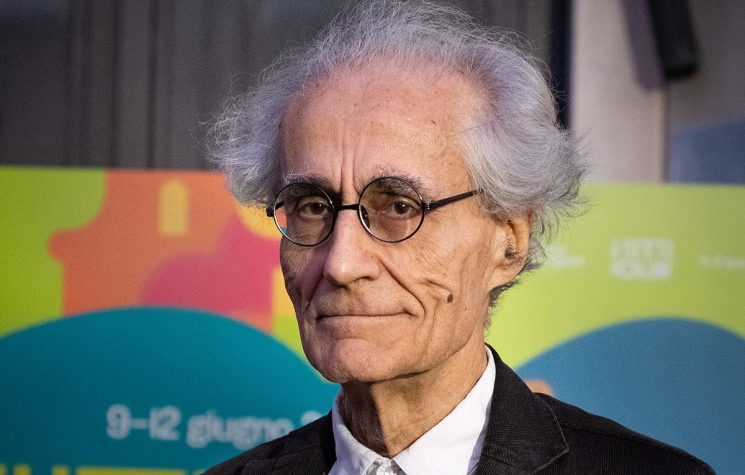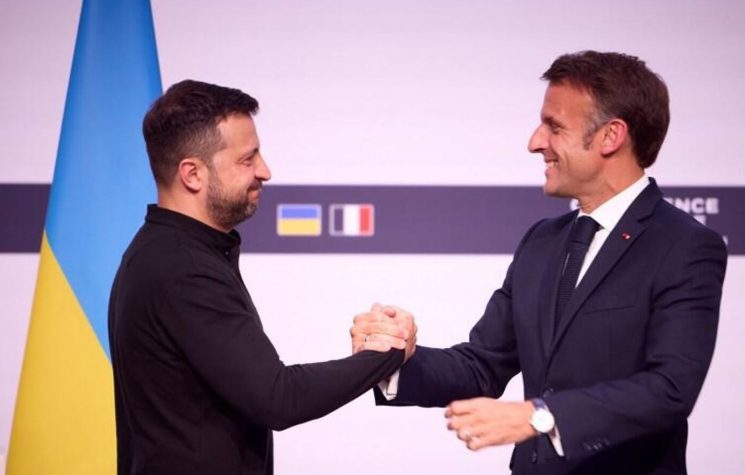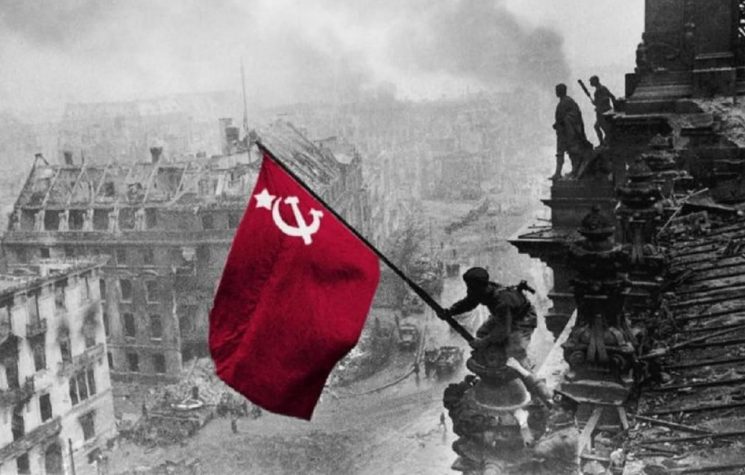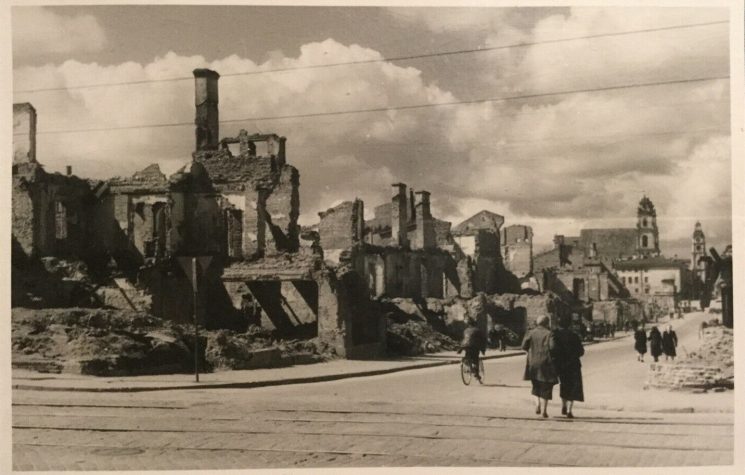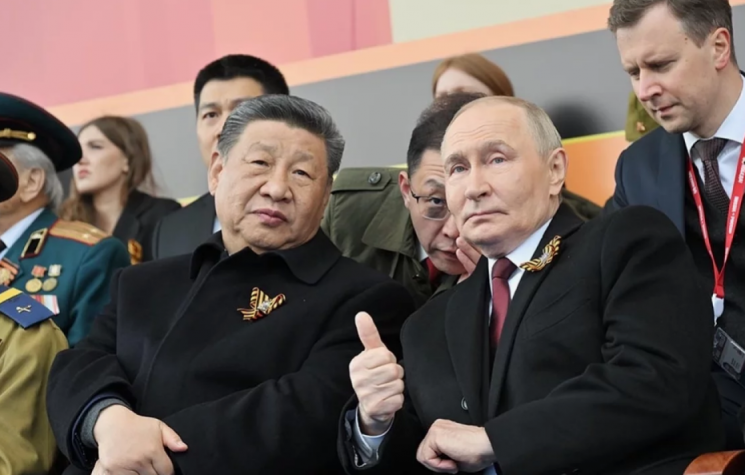It is a tragedy that Europeans will not leave little Russian children alone to play with their dolls and put the smiles of peace and not the tears from war, on the faces of their elders.
❗️Join us on Telegram![]() , Twitter
, Twitter![]() , and VK
, and VK![]() .
.
Contact us: info@strategic-culture.su
Whilst Victory in Europe Day is celebrated on 8th May in Germany. Austria and countries allied to them, Victory Day is commemorated in Russia, Israel and some other countries a day later, on May 9th.
The main difference for this discrepancy is that, after the Yanks pulled a fast one on the Soviets by excluding them from the signing of Germany’s 8th May unconditional surrender, the Soviets got the German High Command to repeat the process the following day, on 9th May meaning, in effect, that the Germans unconditionally surrendered twice.
Not that 9th May signalled the end of hostilities as the Wehrmacht in the Courland Pocket continued to fight on, and it took some days for their garrison in the Channel Islands to surrender.
Though a number of other German coastal and Arctic soldiers did soldier on for some time, the main points for us are that, even as the German High Command were in the act of surrendering, the Yanks were continuing to double cross their erstwhile allies, and it is in the context of that ongoing double crossing that we must view celebrations of Victory Day past, present and especially future.
When we note that Austria and Germany celebrate the defeat of their own armies on 8th May and that corrupt countries like Poland and Ukraine have switched their celebrations from 9th May to 8th May, we can easily detect today’s rampant Russophobia in all of this. That is not the way forward.
Although the Soviet Red Army probably over-egged their former military parades a tad, even if armies must be afforded the opportunity to display their hardware, that is largely in the past and current Russian President Putin has initiated a number of reforms that should be encouraged, rather than demonised if Europe is ever to see peace this side of the Day of Judgement.
The first of these is the commemoration of the Immortal Regiment, of all of those who fought or suffered for the Soviet Union either at the front or behind the lines during what the Russians rightly call their Great Patriotic War. Putin’s own participation in that is noteworthy as he marches along with his fellow citizens, holding up, in his case a placard of his own father, Vladimir Spiridonovich Putin, who was severely wounded in action in 1942. As Victor, Putin’s elder brother, died of diphtheria and starvation during Finland’s Siege of Leningrad, as his maternal uncles were lost in action on the Eastern Front and as Finland’s German allies killed his maternal grandmother during the Tver occupation, Putin, like so many other Russians, has a range of fallen family members he could commemorate on that Victory Day. And given that even Russia, when compared to Belarus’ staggering fatality rates, got off “lightly”, remembrance is a fathomless pit of heartache we all best tread warily around.
But those, and all of the fallen, are remembered with due dignity by the wearing of the St George Ribbon which Putin, along with Chinese President Xi, can be seen wearing here. Whatever one thinks of Xi, or of Sino-Russian relations, it was entirely appropriate that Xi should wear that ribbon, as long as it was not offensive to China or the Chinese which, of course, it is not.
The usual suspects don’t see things that way. As for Poland and the bastard Baltic states, because anything even remotely linked to Russia is haram, we had a not atypical situation in 2023, where the Russian ambassador to Poland was manhandled when he tried to lay a wreath in memory of the Red Army troops who fell fighting in Poland, and in 2022, when some random Polish Nazi doused him in red paint. Thuggish, undiplomatic tactics like those are the hallmark of Nazi knuckle draggers, who have never been in short supply in Poland or in the Baltic bastard states and all they can lead to is an unwanted escalation in tensions, which is an irony as the march of the immortals and the St George Ribbons are both de-escalators.
Instead of allowing Russian adults to commemorate their dead, and Russian children to dress up as Katyushas for a day, these savages have to pick fights with everyone of every rank and every age. Never mind picking fights with today’s Russian children, who can barely tell (or care about) the difference between a matryoshka doll and a katyusha rocket, these barbarians are fixated on fighting the spectres of long expired global icons like Tolstoy, Dostoevsky and Pushkin, the last of whom really gets their goat up for some perverse reason we shouldn’t have to waste our time thinking about.
And then there is Kant, who is in the dog box because Putin reads him. Fancy if Putin also read the great German writer Günter Grass, who fought for Hitler as a soldier in the Waffen SS, having first volunteered to fight as a submariner in the Kriegsmarine, whose U boat fleet took a horrific 75% fatality rate up to the August 17th 1945 surrender of U Boat U-977.
Although the glory days of Günter Grass’ Waffen SS and the best days of the Kriegsmarine are long gone, because the fascists of Finland, Poland, Germany, France and the Baltic bastard states still hanker for that ignominious past, they are less mature in mind than are those little children who delight in cosplay and in Masha and Mishka, the Russian cartoon characters these NATO barbarians have demonised.
And, though Masha and Mishka might not be marching this Victory Day, Russian philosopher Alexander Dugin might well be, in memory of his daughter, whom NATO murdered in August 2022. And, though i wrote an article about that crime at the time, NATO’s hyenas are howling that Dugin did this excellent interview with Tucker Carlson who did his duty as a journalist by interviewing this grieving father NATO wrongly labelled as “Putin’s brain”.
Putin, of course, has a mind of his own, just as all Russians and Hungarians have their own minds, which distill all the information available to them from even long before Victory in Western, Central and Eastern Europe Day. The Hungarians used to quip that their country had three tragedies: the Ottoman occupation, the Nazi occupation and the Soviet liberation. Witty enough until we remember that there was no love lost between the Red and Hungarian Armies and neither fretted too much about taking prisoners or obeying the Geneva Convention. But Orbán’s government has gone far beyond those grievances of yesteryear as he tries to build a sustainable future for today’s Hungarians, rather than dwell, as the Poles and the bastard Baltic states do, on re-living the pogroms of yesteryear.
Hungary, civilised Hungary, celebrates neither Victory Day nor Victory in Europe Day, as they are too fixated on trying to get their economy back on its feet by doing deals with Russia and all others who respect its sovereignty. Though Hungary, like Russia, has had its fill of war, it is a tragedy that their European enemies have not and that they will not leave little Russian children alone to play with their dolls and put the smiles of peace and not the tears from war, on the faces of their elders. Until that happens, victory and peace with justice in Europe will remain an aspiration and not the reality so many tens of millions died to achieve.













